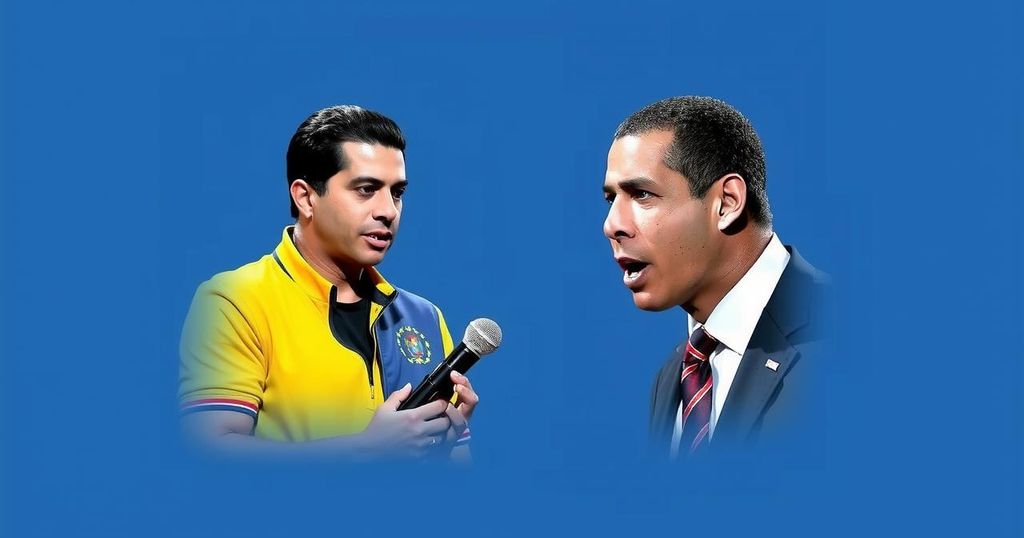The Biden administration has sanctioned 21 Venezuelan officials linked to President Nicolás Maduro, following the disputed July elections. These sanctions aim to hold accountable those involved in human rights abuses during post-election unrest while recognizing opposition candidate Edmundo González as the “president-elect.” Despite previous efforts, the efficacy of these sanctions remains in doubt, as Maduro’s loyalists hold significant power in Venezuela.
On Wednesday, the Biden administration imposed sanctions on 21 Venezuelan officials linked to President Nicolás Maduro, following the controversial presidential election in July. These measures, disclosed by the Department of the Treasury, specifically target high-ranking officials, including those overseeing corrections and intelligence, who are accused of contributing to the suppression of dissent amid post-election unrest.
These newly sanctioned individuals join a growing list of Venezuelan officials already subjected to U.S. sanctions, which also includes ministers and the head of the high court. Despite these sanctions, Maduro loyalists continue to maintain considerable influence within Venezuela’s governmental framework. Acting Under Secretary of the Treasury for Terrorism and Financial Intelligence, Bradley T. Smith, noted that the repressive actions of Maduro’s regime reflect a futile attempt to stifle citizens’ voices throughout the political turmoil that has ensued since the election.
The recent sanctions follow earlier punitive measures against Maduro’s close aides, highlighting the Biden administration’s ongoing strategy to apply both financial and travel restrictions to isolate those who support the Maduro regime. However, there is growing skepticism regarding the effectiveness of these sanctions as numerous key figures in Maduro’s government continue to possess substantial power. In response to the sanctions, Venezuelan lawmakers are advancing legislation that would label international sanctions as crimes against humanity, potentially allowing for the prosecution of supporters of such measures.
These sanctions also coincide with the Biden administration’s recognition of Edmundo González, an opposition candidate, as Venezuela’s “president-elect” after the disputed elections, which Maduro claims to have won but from which he refuses to disclose official results. The swell of protests following the elections has revealed a persistent demand by the opposition for election officials to publish detailed results revealing the legitimacy of the vote. González, who asserts he won by a considerable margin, has faced swift denouncement from Maduro’s government, which alleges he is misrepresenting the election outcome.
The current political situation in Venezuela is marked by a deepening crisis accelerated by disputed electoral processes and increasing authoritarian measures employed by the Maduro government. In response to perceived injustices and election irregularities, the U.S. government has adopted a policy of sanctioning Venezuelan officials believed to be complicit in undermining democracy and human rights. The Biden administration’s latest sanctions build upon previous efforts to exert pressure on Maduro’s regime, reflecting broader international concern regarding the political climate in Venezuela, especially amidst allegations of voter suppression and repression of dissent.
In conclusion, the recent imposition of sanctions by the Biden administration targets 21 Venezuelan officials associated with President Maduro following contentious elections, signaling the U.S. commitment to addressing human rights violations in Venezuela. Despite these efforts, key regime figures remain entrenched in power, raising questions about the effectiveness of sanctions. The situation continues to evolve, with opposition leaders striving for accountability and transparency amidst escalating tensions in the country.
Original Source: www.newsweek.com






